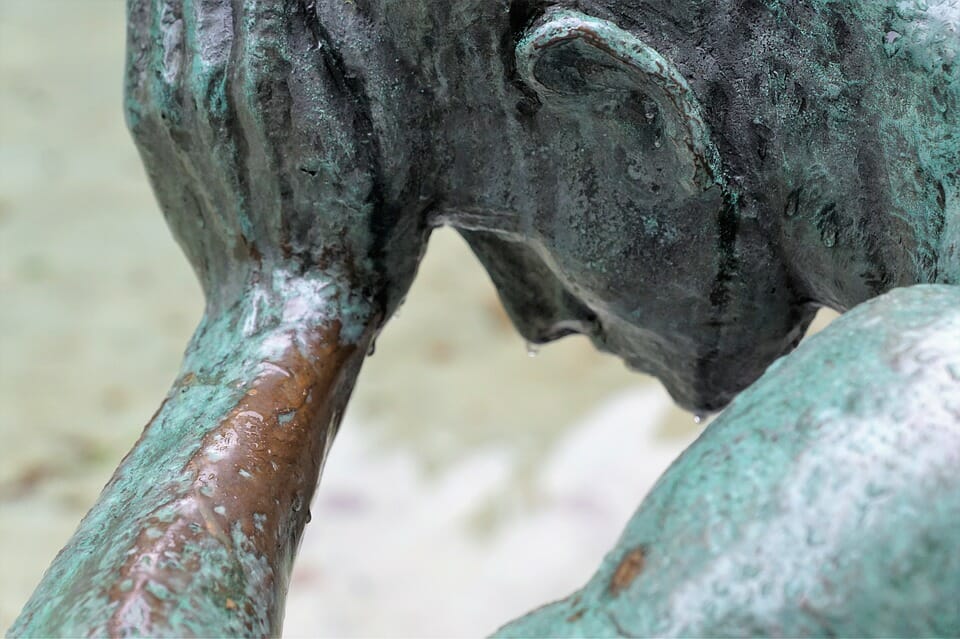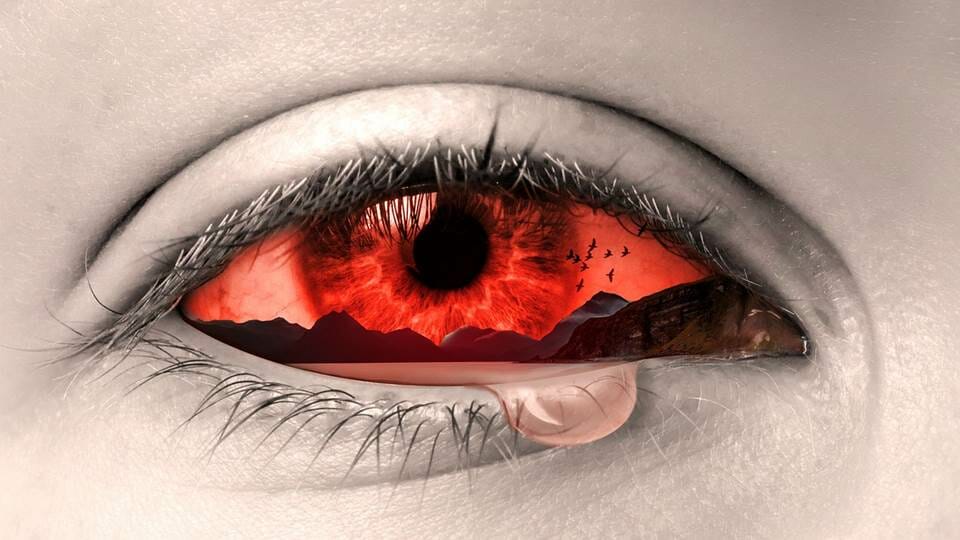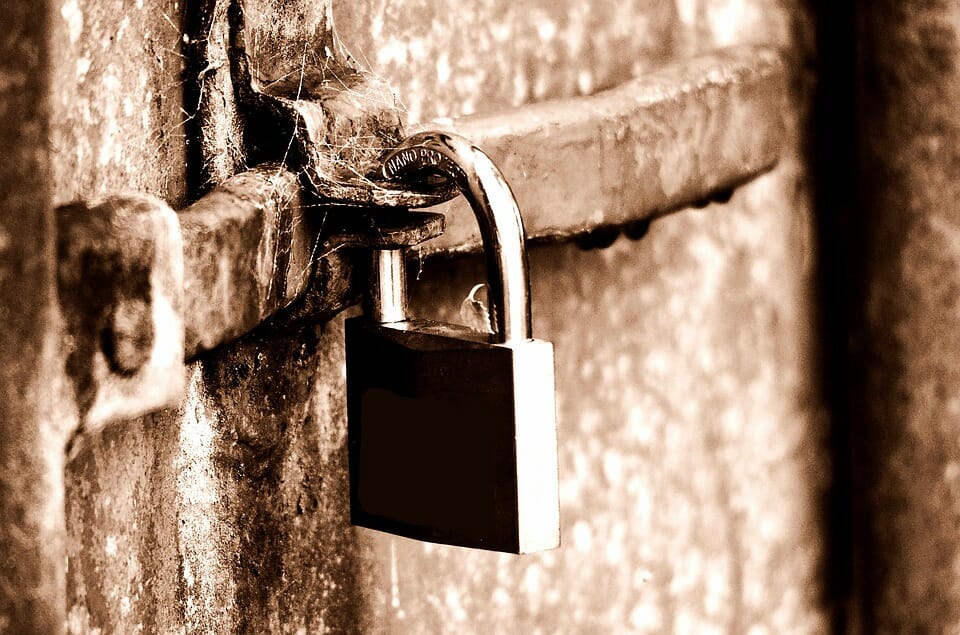
Everyone understands what physical pain is. And the medical world is full of treatments and painkillers to eliminate this pain. But psychological pain is not that well-known and treating it is a bit more challenging.
Physical pain comes from damage to the tissues of the body. Psychological pain is a suffering with no apparent physical origin. You can even say that all the feelings we don’t like – sadness, grief, anger, contempt, frustration, rage, depression, etc. – are forms psychological pain.
Physical pain is often localized, temporary and associated with some harmful or damaging physical trigger. Psychological pain is a more generalized, lasting, unpleasant feeling resulting from an inability to cope with emotional challenges. But sometimes, it manifests just like physical pain does.
It’s important to explain that physical pain is not necessarily stronger than psychological pain. When I lost my two children, I learned how painful psychological pain could be. I felt it all over my body. For me, it felt totally physical.
The presentation of physical pain can be very misleading in the treatment of psychological pain. That’s why focusing only on the symptoms is not enough.
My Personal Experience with Psychological Pain
I have hundreds of examples of physical pain, skin problems and other issues that healed with coaching and without any medication. I’m not a doctor and I only prescribe “emotional painkillers”.
About 3 years ago, my own mother, who was 80 years old at the time, came for a 5-week visit. During that time, she healed from many health issues and went from sickness to health.
Before she came, she had diabetes, swollen legs and fibromyalgia (nerve pain and fatigue). She could not walk, sweated a lot every night, and could not lift her arm past shoulder height due to shoulder pain.
Everyone was convinced she had dementia, because she couldn’t keep a conversation and seemed confused and forgetful. The doctors ignored her and said she was a hypochondriac (she probably is).
In those 5 weeks, we combined physical stimulation (massage, hot spa, food) with psychological strategies (coaching, timeline therapy, memory therapy, pride therapy, rating, meditation, personal attention, family time). She stopped taking her super strong pain medication and came back to life. She stopped having “medical” problems she’d had for 10, 15 and 30 years before.

Now, 3 years later, my mom is still healthy. She feels and looks better than she ever did in 30 years. Swollen legs: gone. Diabetes: gone. Sweating: gone (that was a side effect of the pain mediation). Shoulder pain: gone. She can walk, she can pay attention and she no longer uses any of the medication she used before.
It’s important to understand that physical pain affects our psychological pain and vice versa. To our body, it’s all chemical. Beliefs, thoughts and feelings produce chemical reactions that affect our physical body, and our physical body affects our psychology.
Our mind and our body are not two separate components of the same human. They are, in fact, one! I can tell you from my work that focusing only on the physical and not the psychological doesn’t do the real healing.
Finding the Source
If we want to help ease psychological pain, we must figure out the source of the pain. There are some theories that claim every physical pain is a manifestation of some psychological pain.
When I was 18 years old, my sister bought me the book You Can Heal Your Life by Louise Hay as a gift. In the book, there is a beautiful explanation of the thought pattern that goes with each illness. The more I studied this, the more I learned about the strong connection between body and mind.
Thoughts create our reality.
15 years later, I did a course in Reiki. The Reiki master explained everything that happens to us as the result of something mental. She claimed that even an injury, supposedly caused by someone else, was a manifestation of an emotional- psychological issue that needed attention.
In various Buddhism courses, the topic came up again and again. Our thoughts, our unfinished psychological businesses, will show up in our physical world. To heal, we must heal the mind.
When I wanted to help my coaching clients heal, I bought the colorful version of Louise Hay’s book again. And when my clients came with physical problems, I searched for the matching psychological pain at the source. I then focused the healing on that specific emotional pain.
You could say I gave them the right psychological painkiller.
Psychological and medical painkillers
I believe strongly in psychological painkillers and prefer them over drugs. It must be because I was medicated to the max as a kid, and when I studied Special Education, my mentors hated medicating children.
I think this belief has helped me a lot in my career. Because when I worked with children, I found non-medical ways to help people, ways that worked on the psychological side. It’s possible that the source doesn’t seem psychological, but the solution can be.
It’s actually quite amazing sometimes.
With psychological painkillers, I’ve helped many people who had suffered from physical pain for years. The cocktail of medical painkillers my mom took for over 30 years almost killed her, but she managed to throw them all away and live.
Don’t get me wrong. I believe there is a big place for doctors, but if they don’t treat the body and mind at the same time, they only make sure the patient will come back again.
Side effects

ALL medical painkillers have (serious) negative side effects. No exception! They fix something and cause damage somewhere else. There is absolutely no medical solution that has no side effects. And there’s no guarantee the problem will not appear again. Only the pain goes away, and only while you take the medication.
Psychological painkillers have positive side effects. When you heal one area, many other areas heal at the same time. 100% of my clients who healed a psychological pain, healed other areas of their life. This also included physical problems some of them had suffered 30 or 40 years.
When you get rid of shame, guilt, inadequacy, sadness, anger, fear, disgust, etc., and you understand how they manifested in your body and how they impacted other aspects of your life, you clean your body from their toxicity forever. It’s as if you’ve gone back in time and changed all the events that were affected by this psychological pain, and they no longer hurt you.
Having psychological pain is part of life. Every discomfort is a form of pain. Some are lighter and some are more severe. The more severe the pain is, and the longer you’ve suffered from it, the more it will manifest in our body.
Your List of Psychological painkillers

Here’s a list of psychological painkillers to help you heal. Many of the posts in this blog are, in fact, psychological strategies to heal the body and mind. So if you need more information, just search the site for an article that matches the pain you have.
- Think of pain as a communication tool or the postman. When something isn’t working properly, your body uses pain to tell you or send you a message that something is wrong. So don’t kill the messenger. Instead, try to find the real source of your pain.
- Stop crying. When we are babies, we think that crying makes the world go around. Without crying, we would die. If the world doesn’t happen the way we want it to happen, we cry. Complaining about our pain is just like crying. It doesn’t make the pain go away. It just annoys others and keeps you from finding a solution. So notice whenever you cry and stop. Keep doing it until you stop yourself from crying altogether.
- Grow from the pain. We may not control what happens to us in life, but we always control what we do about it. In every situation, we have a choice to be bitter or better. Choose to be better. Look for the good in having the pain. Maybe it’s telling you to take better care of yourself, because you matter?
- Some theories claim you should not scare pain away but stay and feel it until it dissolves. Have a self-pity session (do it on your own, so you won’t be tempted to throw it on someone else) and experience the pain fully. Scan your body for the pain and analyze it. Give it a shape, a color, a sound, move it from side to side and manipulate it. I use this with my clients, and it works like magic.
- Sleep well. When we get enough good sleep, our body cleans itself and gets rid of toxins, both physical and psychological. If you spend too much time in front of a screen, or partying, you are causing stress on the system. Being tired once or twice because of something special you had last night is never an issue. But being tired constantly is. Stay away from screens before bedtime. Do quiet, relaxing things. Dim the lights and transition to sleep in a peaceful way. Good sleep is essential for the body and the mind.
- Meditate! Meditation does exactly the same thing that sleep does, only faster. Every 10 minutes of mediation is equivalent to an hour of cleaning done when we are sleeping. Any meditation will do, as long as you do it regularly.
- Every suffering is caused by unmet expectations. Remember, you are not in pain because of something someone else did (or didn’t do), but because your expectations from them. The only thing we can expect from others is to do what they do. Yes, I know, it’s mind boggling. Read it again: the only expectations we can have from ourselves and others is for things to happen exactly the way they do.
- Separate facts from meaning. Every feeling you have that’s causing you pain is a result of your interpretation of the situation. We all have filters and the meaning we assign to things is ours and ours only. There is no such a thing as truth, and what you consider truth is not what others do. “We agreed to meet at 7:30 and he came at 8:00” is a fact. “He is disrespectful, and I can’t trust him, because he came half an hour late” is our interpretation. If we change it, we’ll have less pain.
- Expressing pain does not make it go away! No psychological pain disappears when you share it. It can ease for a while, but it won’t go away. I find it very sad to meet people that dedicate their life to expressing pain and their pain only increases. As I said, sharing it might help for the time of sharing, but the source needs to be addressed.

- Develop a positive outlook on life. Positive people have a better outlook on life. They see the glass half full and they make lemonade from lemons thrown at them. Positive people have the same challenges, but they snap out of them quickly and focus on what they can do. They seek, and they find! Positive people heal faster, whether from physical or psychological pain. Dedicate yourself to developing a positive mindset. It’s one of the best psychological painkillers.
- Pain is not a stop sign. Years ago, after losing 2 babies, I was talking to my friend Kathy and asked her if she thought it was a sign I should stop trying to bring children into the world. She was a wise, mature person (and a GP) who chose to only have one child and I so wanted to be like her and loose the desire to have more kids. She told me she didn’t believe in signs. I thought about it a lot and over the years, I learned that Kathy was at peace with the decision to have one child, but I wasn’t. That’s the sign. If you’re at peace with something you do, it’s a sign this is what you’re supposed to do. If you’re not in peace, don’t stop! I didn’t let the pain stop me. I had two more children since, and I’m glad I did.
- Clean your belief system. Go over your belief system and get rid of thoughts that cause you pain. How to do it? Use this formula: If thinking it brings you joy, keep thinking it. If it causes you pain, get rid of it. Thoughts are not correct/right or wrong. They are either good for you or not.
- Clean your life from toxic people. Some people in our life are toxic for you. They are negative energy suckers. Hanging around such people can cause lots of psychological pain. Do some spring cleaning amongst the people you are associating with. Ask yourself the same question: Is being with this person brings me joy? If yes, spend lots of time with that person. If not, do your best to clear this person from your life. Is this always possible? No. We don’t choose our parents or siblings, and it will be very challenging to get rid of our children or partners if the relationship is toxic and causes us pain. So just do what you can. If you think you can’t, surround yourself with more people who make you feel good. Find non-judgmental, kind, accepting, encouraging, happy, optimistic, generous, secure people. They will counter those people in your life who are a source of conflict and pain. This might not kill the pain, but it will certainly help.

- Action is a good way to change your life and it’s a good distraction. Some people say that distraction is not a good idea, but I think otherwise. When we’re in big pain, we can’t think properly. Distracting ourselves can get us out of the primitive brain and help us think better. Make a to-do list and work on it. Action helps ease your psychological pain, because you understand that the power to change is in your hands.
- Adopt the serenity prayer. “God, grant me the serenity to accept the things I cannot change, courage to change the things I can and the wisdom to know the difference”. This is the slogan of many support organizations. I think it sums up the solution to all psychological pain nicely.
- Master the art of happiness. We are in this life to be happy. Happiness is the best painkiller, whether the pain is physical or psychological. When we’re happy, we can’t experience any psychological pain. Think of the body as a battery. When we’re happy, the battery is charged, and when we are in pain/suffering, the battery is depleted. We can’t go through life without pain and depletion. That’s just part of life. But we need to make sure we charge our batteries faster than we deplete them. Learn how to be happy and enjoy the happy moments.
- Celebrate your achievements! When we do it, we are rewarding ourselves for success and feeling good. It’s a double boost to the battery. The first boost is achieving and the second one is celebrating it. Think of it as turbo charging.
Pain is part of life, but it depletes us from happiness, joy, and success in life. Whether it’s psychological or physical, it compromises our livelihood. It’s OK to be in pain sometimes, as it helps us navigate life. But constant pain is a sign we need to quickly find some psychological painkillers.
Psychological pain has a similar impact on our body to that of physical pain. Sometimes bigger. I hope the tips above will help you find the right painkillers for your specific psychological pain.
May you live a pain-free life,
Ronit














